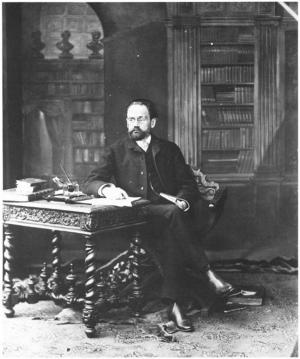The Wars of the Roses: Stories of the Struggle of York and Lancaster
Nonfiction, Religion & Spirituality, New Age, History, Fiction & Literature| Author: | John George Edgar | ISBN: | 9781465606617 |
| Publisher: | Library of Alexandria | Publication: | March 8, 2015 |
| Imprint: | Language: | English |
| Author: | John George Edgar |
| ISBN: | 9781465606617 |
| Publisher: | Library of Alexandria |
| Publication: | March 8, 2015 |
| Imprint: | |
| Language: | English |
On St. Nicholas's Day, in the year 1421, there was joy in the castle of Windsor and rejoicing in the city of London. On that day Katherine de Valois, youthful spouse of the fifth Henry, became mother of a prince destined to wear the crown of the Plantagenets; and courtiers vied with citizens in expressing gratification that a son had been born to the conqueror of Agincourt—an heir to the kingdoms of England and France. Henry of Windsor, whose birth was hailed with a degree of enthusiasm which no similar event had excited in England, was doomed to misfortune from his cradle. He was not quite nine months old when Henry the Fifth departed this life at Vincennes; and he was still an infant when Katherine de Valois forgot her hero-husband and all dignity for the sake of a Welsh soldier with a handsome person and an imaginary pedigree. The young king, however, was the beloved of a thousand hearts. As son of a hero who had won imperishable glory for England, the heir of Lancaster was regarded by Englishmen with sincere affection; the legitimacy of his title even was unquestioned; and the genius of his uncles, John, Duke of Bedford, and Humphrey, Duke of Gloucester, under whose auspices the royal boy was crowned in London and Paris, created a feeling of security seldom felt by kingdoms at the beginning of long minorities. For a time the aspect of affairs was cheering. At a critical period, however, Bedford expired at Rouen; and ere long England was distracted by a feud between Gloucester and that spurious son of John of Gaunt, known in history as Cardinal Beaufort, and as chief of a house which then enjoyed the dukedom of Somerset. Gloucester charged the cardinal with contempt for the laws of the realm; and the cardinal avenged himself by accusing Gloucester's duchess of endeavoring to destroy the king by witchcraft, and banishing her to the Isle of Man. It soon appeared that the rivalry between Duke Humphrey and his illegitimate kinsman would involve the sovereign and people of England in serious disasters. Nature had not gifted Henry of Windsor with the capacity which would have enabled a sovereign to reconcile such foes. Never had the Confessor's crown been placed on so weak a head. Never had the Conqueror's sceptre been grasped by so feeble a hand. The son of the fifth Henry was more of a monk than a monarch, and in every respect better qualified for the cloister than for courts and camps. In one respect, however, the king's taste was not monastic. Notwithstanding his monkish tendencies he did not relish the idea of celibacy; and the rival chiefs, perceiving his anxiety to marry, cast their eyes over Europe to discover a princess worthy of enacting the part of Queen of England. Gloucester was the first to take the business in hand. Guided at once by motives of policy and patriotism, he proposed to unite his nephew to a daughter of the Count of Armagnac; and he trusted, by an alliance, to allure that powerful French noble to the English interest. The king did not object to the Armagnac match. Before striking a bargain, however, he felt a natural desire to know something of the appearance of his future spouse; and with this view he employed a painter to furnish portraits of the count's three daughters. Before the portraits could be executed circumstances put an end to the negotiations. In fact, the dauphin, as the English still called the seventh Charles of France, having no reason to regard the proposed marriage with favor, placed himself at the head of an army, seized upon the count and his daughters, and carried them off as prisoners of state.
On St. Nicholas's Day, in the year 1421, there was joy in the castle of Windsor and rejoicing in the city of London. On that day Katherine de Valois, youthful spouse of the fifth Henry, became mother of a prince destined to wear the crown of the Plantagenets; and courtiers vied with citizens in expressing gratification that a son had been born to the conqueror of Agincourt—an heir to the kingdoms of England and France. Henry of Windsor, whose birth was hailed with a degree of enthusiasm which no similar event had excited in England, was doomed to misfortune from his cradle. He was not quite nine months old when Henry the Fifth departed this life at Vincennes; and he was still an infant when Katherine de Valois forgot her hero-husband and all dignity for the sake of a Welsh soldier with a handsome person and an imaginary pedigree. The young king, however, was the beloved of a thousand hearts. As son of a hero who had won imperishable glory for England, the heir of Lancaster was regarded by Englishmen with sincere affection; the legitimacy of his title even was unquestioned; and the genius of his uncles, John, Duke of Bedford, and Humphrey, Duke of Gloucester, under whose auspices the royal boy was crowned in London and Paris, created a feeling of security seldom felt by kingdoms at the beginning of long minorities. For a time the aspect of affairs was cheering. At a critical period, however, Bedford expired at Rouen; and ere long England was distracted by a feud between Gloucester and that spurious son of John of Gaunt, known in history as Cardinal Beaufort, and as chief of a house which then enjoyed the dukedom of Somerset. Gloucester charged the cardinal with contempt for the laws of the realm; and the cardinal avenged himself by accusing Gloucester's duchess of endeavoring to destroy the king by witchcraft, and banishing her to the Isle of Man. It soon appeared that the rivalry between Duke Humphrey and his illegitimate kinsman would involve the sovereign and people of England in serious disasters. Nature had not gifted Henry of Windsor with the capacity which would have enabled a sovereign to reconcile such foes. Never had the Confessor's crown been placed on so weak a head. Never had the Conqueror's sceptre been grasped by so feeble a hand. The son of the fifth Henry was more of a monk than a monarch, and in every respect better qualified for the cloister than for courts and camps. In one respect, however, the king's taste was not monastic. Notwithstanding his monkish tendencies he did not relish the idea of celibacy; and the rival chiefs, perceiving his anxiety to marry, cast their eyes over Europe to discover a princess worthy of enacting the part of Queen of England. Gloucester was the first to take the business in hand. Guided at once by motives of policy and patriotism, he proposed to unite his nephew to a daughter of the Count of Armagnac; and he trusted, by an alliance, to allure that powerful French noble to the English interest. The king did not object to the Armagnac match. Before striking a bargain, however, he felt a natural desire to know something of the appearance of his future spouse; and with this view he employed a painter to furnish portraits of the count's three daughters. Before the portraits could be executed circumstances put an end to the negotiations. In fact, the dauphin, as the English still called the seventh Charles of France, having no reason to regard the proposed marriage with favor, placed himself at the head of an army, seized upon the count and his daughters, and carried them off as prisoners of state.















